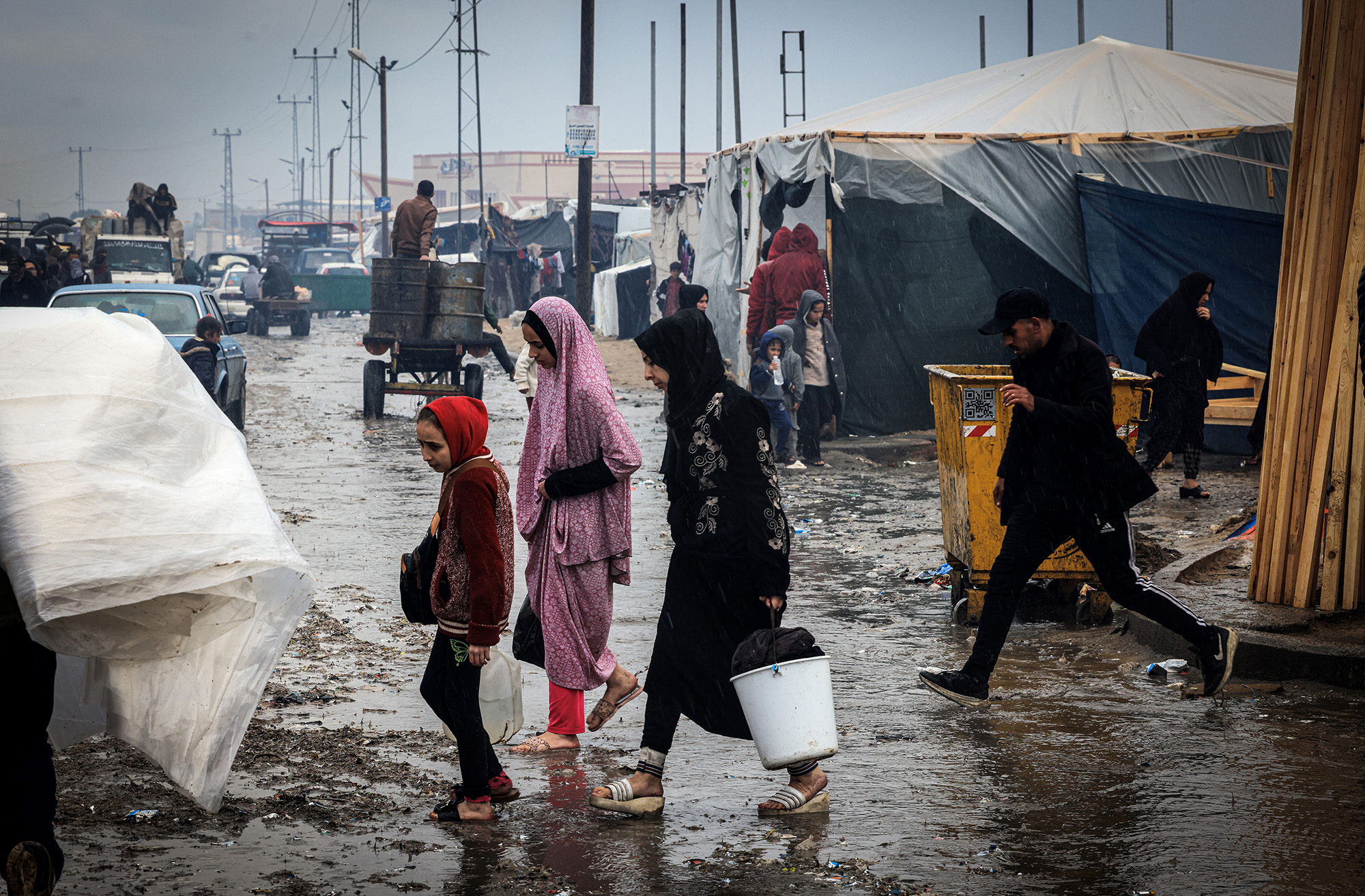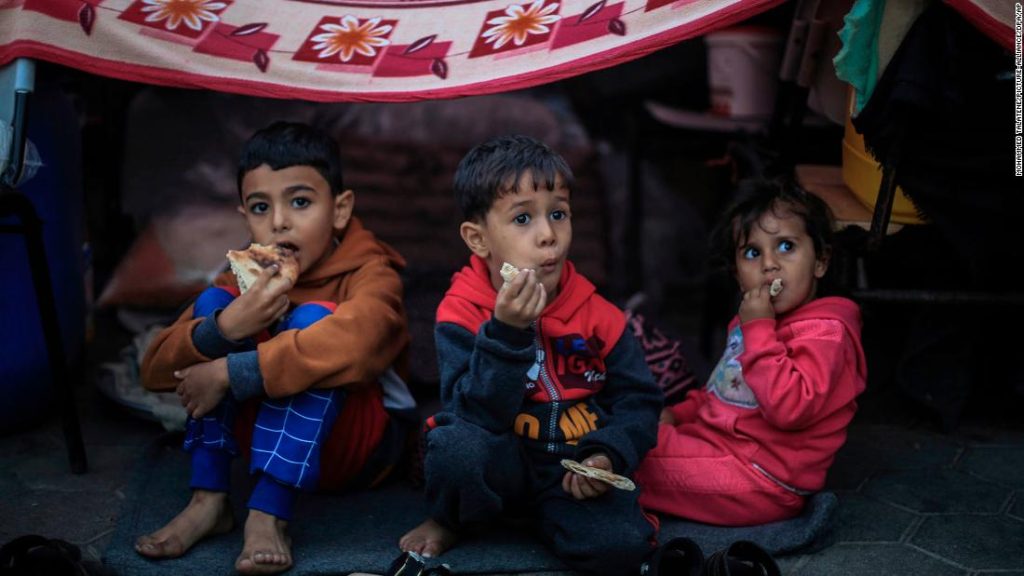
Muhammad Hamouda says that the streets of the city of Rafah, in the south of the Gaza Strip, are full of pollution as beggars and displaced civilians try to survive in shelter conditions ravaged by death and disease.
“Life here is very difficult,” the physical therapist, who works at Abu Youssef al-Najjar Hospital in Rafah and volunteers at a nearby shelter, told CNN on Tuesday. “Hundreds of thousands cannot find shelter,” he said. “The others sleep on the sidewalk.”
Hamouda and his family are part of the 1.93 million people in Gaza who have been displaced, seeking safety from Israeli bombing and blockade. He lives with his family in a shelter.
The United Nations Relief and Works Agency for Palestine Refugees said on Tuesday that more than a million people are crammed into Rafah. The United Nations Office for the Coordination of Humanitarian Affairs said in December that estimates indicate that the southern city is the most densely populated area in Gaza, with a population exceeding 12,000 people per square kilometre.
Israel’s strict restrictions on the entry of food, fuel and water into Gaza have put more than 2.2 million people in Gaza at risk of severe drought and famine. Those living in overcrowded shelters and huge camps are exposed to infectious diseases, and children are most at risk, according to Hamouda.
He added that young children are showing signs of malnutrition. Meanwhile, “there is no one” to meet the needs of disabled civilians who need assistive devices. Hamouda added that people with chronic diseases such as high blood pressure, diabetes, and epilepsy cannot obtain medicine.
““Unfortunately, (those with) wounds are infected and preparing for amputation.”
The trauma of war is no stranger to civilians in Gaza, as they have lived for years under siege. As the Israeli military attack on the Palestinian Strip following the Hamas attacks on October 7 entered its third month, Hamouda said that “all residents of the Gaza Strip need mental health intervention.”
“Children in particular develop complications of fear, excessive crying, and urinary incontinence. “They wake up several times at night,” he told CNN. “My children don’t let me go to work,” he said. “When I am outside, they hear the explosion. They think their father is dead, and they scream and cry a lot and ask about their father, and ask about their mother.”
Hamouda described the turmoil he feels when surrounded by a “sense of death,” as he balances his responsibility as a health worker with his fears for his family.
“I often wake up with scary dreams and nightmares. “I feel like I will lose my children soon,” he said, adding that many of his friends and relatives were killed in the war.
“There is so much suffering that I cannot describe. Three months ago, my children and I had a home. Today I live inside a shelter,” he added. “My house was completely destroyed. And with it, beautiful memories were shattered.”


